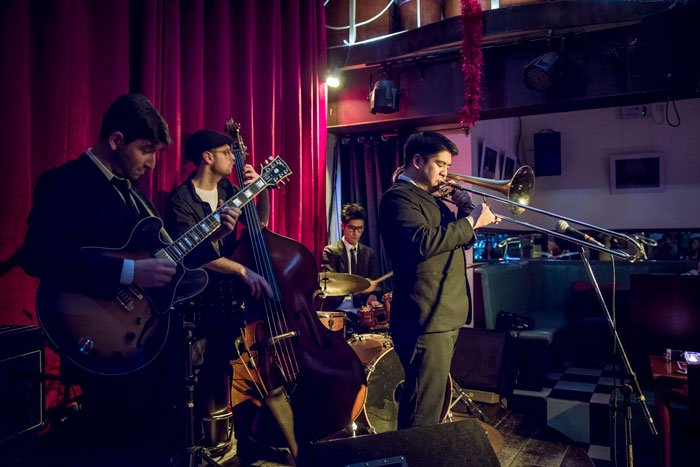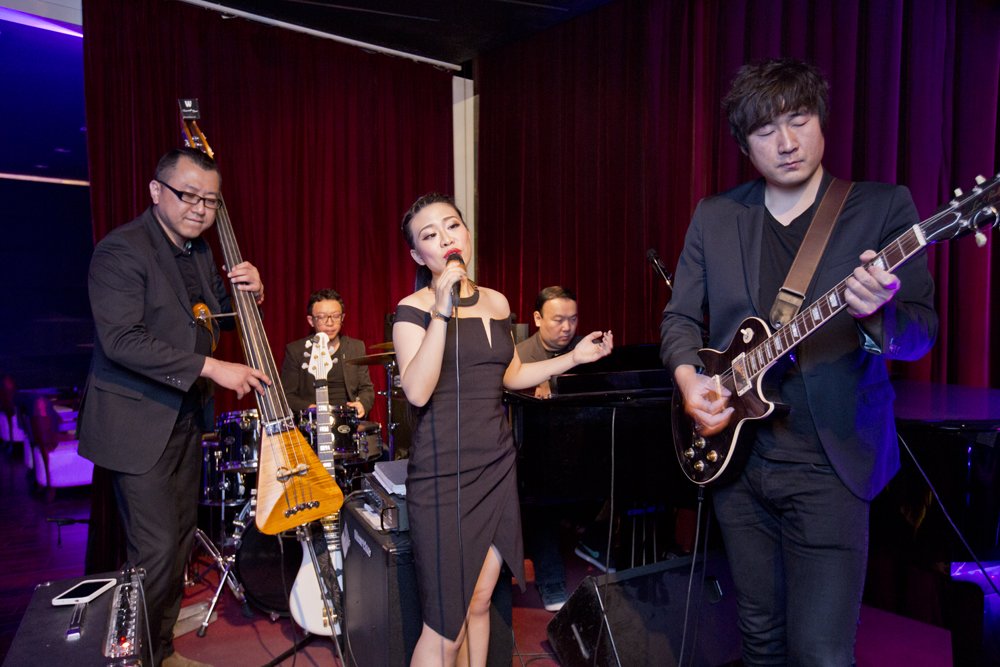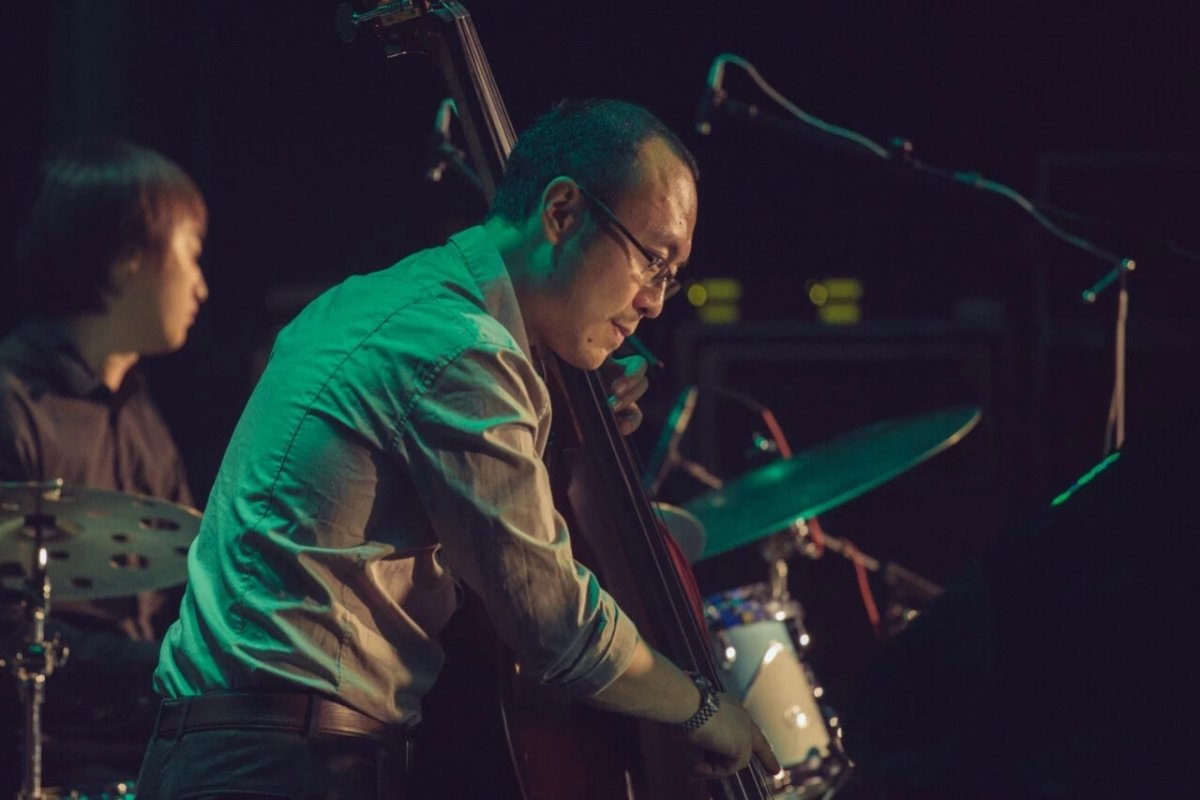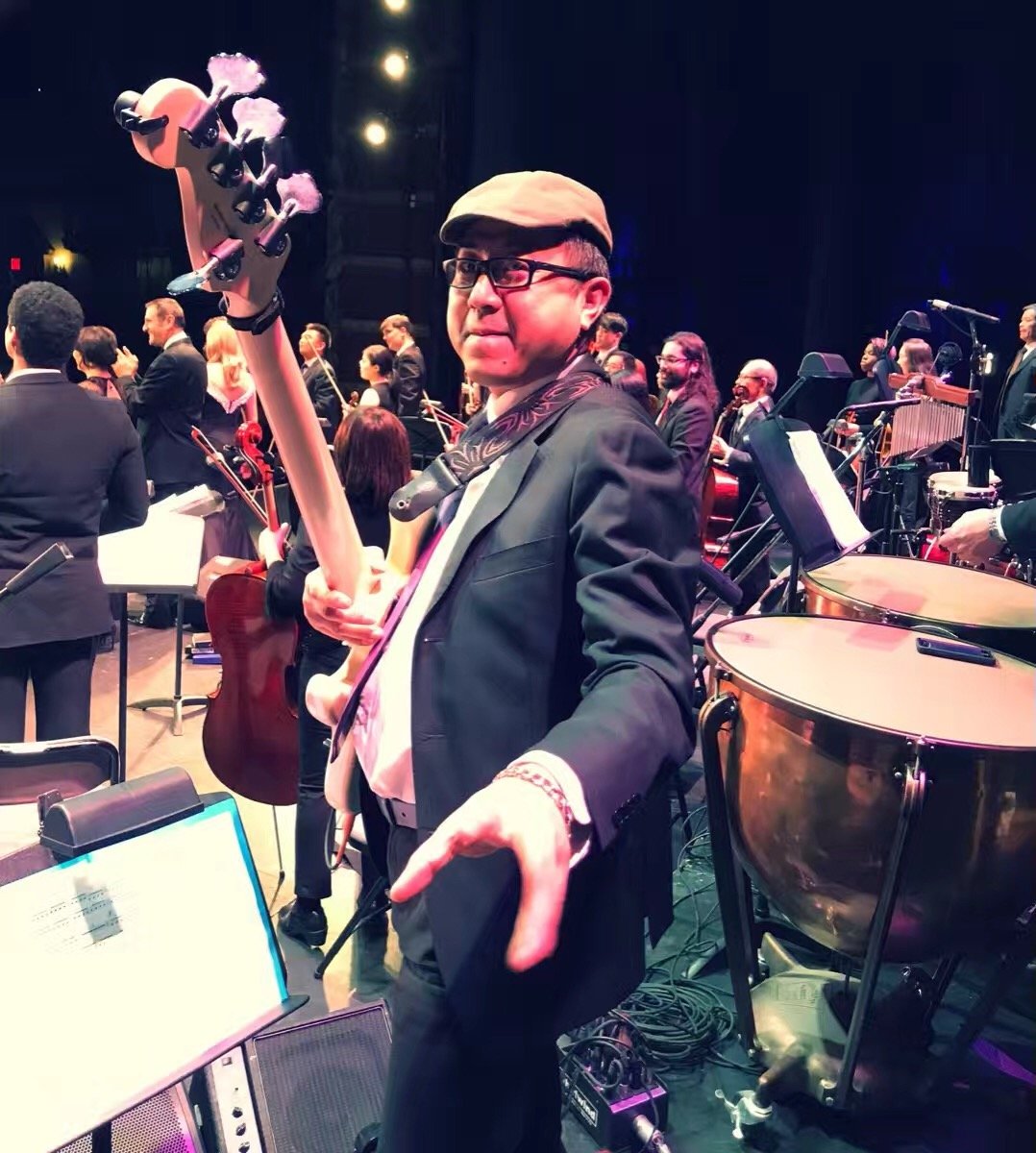''We Need a Jazz Band, but They All Have to Be Foreigners": The Discrimination Faced by Asian Musicians
Even though Beijing's jazz scene is booming these days, the benefits don't always reach the musicians involved. In fact, some artists face harsh discrimination, in particular, Chinese musicians or musicians of Asian ethnicity.
Terence Hsieh is one of the many local musicians who must contend with this issue. Back in May of 2018, the American-born Chinese trombone player posted on Facebook about a contentious WeChat exchange he had with a Beijing gig promoter, captioning it: "When they make you jump through all the hoops and then you lose the gig because they want non-Chinese looking musicians. #racism #corporategigging #china #jazz."

The post reads:
Not foreigners?
We’re running late. There are lots of events coming up, and an all-foreign band needs to be arranged in advance. So it’s problematic to arrange one right now. But this band is good, I’ve been to their show several times.
Thanks. I’ll try to contact them.
Along with a two of his Chinese peers in the scene – Zhang Ke, who plays bass at numerous gigs around town and Tore, another bassist who played in the Westin hotel's house jazz band from 2008-2015 – Hsieh tell us more about the problem, and what they think should be done about it.
How did it feel to get that racially charged message?
Hsieh: It’s more annoying than anything. I don’t usually do these kinds of corporate or hotel gigs for this particular reason, because chances are that I’ll get fired before I play the gig, and companies and agents want me to jump through all kinds of hoops. They'll ask for all kinds of additional information like set lists and biographies and band press kits designed and sent off before they make a decision to hire a band or not.

Sounds frustrating.
Hsieh: To me, these gigs are not particularly important, and so I don’t stress out about them that much. Of course, to an event planner who knows, or cares, little about music, the optics of the performance become much more important.
A gig that pays more attention to my face than the quality of my music is just not a gig I’m particularly interested in playing, beyond the monetary compensation I’m receiving. So while it might be annoying to get these kinds of messages, I don’t really take these rejections at face value.
Zhang: I don't usually get emotional in these situations. It's very unprofessional and silly to make such a request, of course. But the pay is good at these corporate gigs, usually several times or even ten times that of a regular show at a jazz bar. It's usually nothing more than a dinner party for a company, and no one listens to music. So if they just need a few foreigners' faces onstage in order for me to play too, I don't mind. The problem is that some of these promoters want foreigners exclusively.
Tore: It's all about commerical promotion. They want to look impressive by having obviously foreign talent onstage. It's economics. Some markets want a different product. I try to sell them my music, but some of these promoters don't want real music, which sucks!

How do you think this way operating leaves Chinese musicians who do rely on those types of gigs?
Hsieh: I’m not really involved beyond my peripheral access to this part of the scene, so it’s hard for me to say. Even in terms of knowing how much Chinese musicians rely on corporate gigging for their livelihoods. I’d imagine that they’re pretty resigned to operating within a divided scene, begrudgingly or not. But obviously it’s not great, so I would hope that changes.
How does this problem short change audiences who would benefit from seeing great performers, regardless of their race?
Hsieh: I think we have to separate great music venues from well-paying corporate gigs. In terms of performances at places like East Shore, Jiang Hu, The Bricks, DDC or Modernista, this dynamic is definitely not present. Chinese musicians and foreign musicians share the stages there all the time, and that’s what keeps us together. Audiences benefit from seeing shared performances at those venues.
At corporate gigs, the event planner isn’t usually paying musicians to play, and certainly not anything that requires a lot of attention to listen to. Perhaps it would be nicer to see Chinese musicians getting more corporate gigs because it’s so hard to make a living here playing just jazz, and we wouldn’t be seeing as many musicians leave the scene to go elsewhere or quit music altogether because they can’t put their kids through school in Beijing or afford rent.
Read our Q&A with Tore and his former Westin bandmates here.
Tore: Not all hotels have this problem, of course. The first GM at the Westin was amazing and really understood music. What the boss wants is very important, of course. So I was lucky to have that gig for so many years. Not everyone is so lucky.
Zhang: Beijing's professional jazz clubs have knowledgable audiences, so this problem isn't evident there. But if it's a commercial show, I'll sometimes hear: ''We need a jazz band, but they all have to be foreigners."

What else should be done to improve the situation for more players, then?
Zhang: I have no idea. This question is quite complicated. This kind of music is not appreciated by most people in the West, let alone in China, and jazz music is new to China so we don't have the clout of more mainstream musicians. I think the only feasible thing is to hold out hope for the young up and comers. If they can reach wider audiences, through hard work, it should raise awareness of these kinds of problems.
Hsieh: It's a difficult question to answer. There’s a lot of backlash against corporate event requests with ethnic considerations on a lot of the music WeChat groups in Beijing, but obviously, that doesn’t really do much to rectify the situation. Also, these agents are just doing what the corporate event planners tell them. So yelling at an agent is not necessarily a good or effective way of dealing with the problem.

Is there no hope for improvement, then?
Hsieh: Well, I think awareness is a major part of changing the attitudes. A fair number of these racial or ethnic stipulations are being perpetrated by American or foreign companies with Chinese branches. I’m sure they’d be appalled if they were made aware of these awkward transgressions simply from a PR standpoint.
Also, I think there’s a sense that having foreign-looking musicians somehow adds more authenticity to whatever event they’re running. I guess that's reflective of certain cultural mentalities that come with global consumerism. I’m not entirely sure of how to rectify it, or where to even begin, but I think it’s important that as musicians, venues, and media, we all work together to support each other, which is what many of the musicians in Beijing already do.
Oh really? So it's not that cutthroat, and that bodes well for the future?
Hsieh: The Beijing jazz scene is actually really special in that the musicians in it are playing somewhere almost every night of the week, whether it’s a small club or a large venue, and those gigs are entirely open to the public. Whether it’s keeping the jazz swing tradition alive or a more modern creative approach, anyone is welcome to come to listen and serious musicians are always welcome to come and take part in the music making. Keeping that spirit alive is most important, to make sure that the scene can be an outlet for those who want to come and make their own sound and work with other great musicians.
To do that, we have to keep the national and racial politics – as well as those who have an interest in making an exclusive culture out of monetizing jazz – out of the scene. That way, we can focus on making creative and interesting music that’s available for all.
READ: At 25, Jazz Is Growing up Fast in Beijing
More stories by this author here.
Email: kylemullin@truerun.com
Twitter: @MulKyle
Instagram: mullin.kyle
Photos: Jens Thekkeveettil (via Unsplash), da.org, the Beijinger, WeChat







